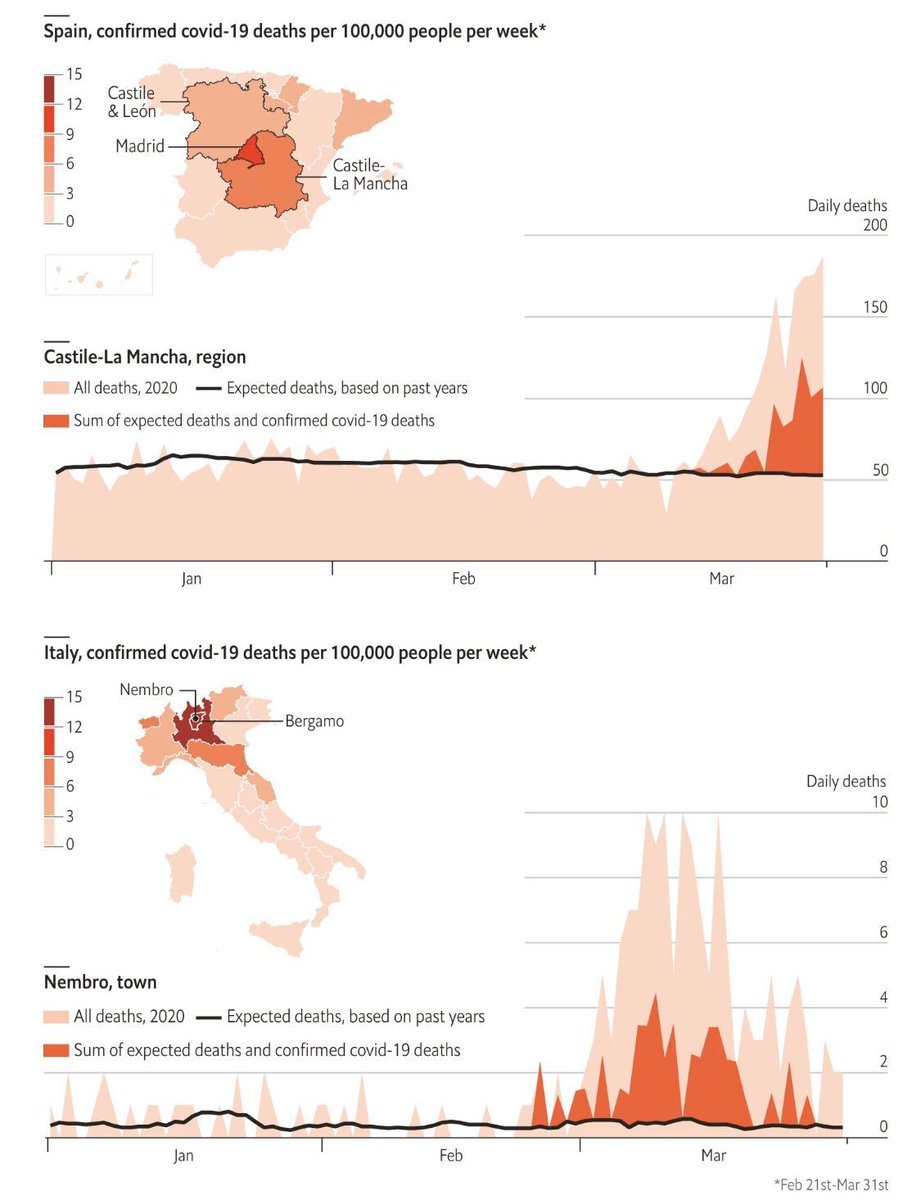
this is a very good thread--esp from someone not in health care--and makes a lot of great points about how bad ICU occupancy is
https://twitter.com/asymmetricinfo/status/1335961135640694784
some things to add:
forget who I stole this from but hospital capacity is a lot like a tetris endgame -- you can be really full even when there is technically "space"
forget who I stole this from but hospital capacity is a lot like a tetris endgame -- you can be really full even when there is technically "space"
additionally, things don't happen instantaneously. even when there is space and everyone wants everything to move, things take time--turning over a room (ie cleaning), staff communication, patient transport
and that's just within a hospital! we haven't built a network of say, citywide ICUs that can flex to take patients when 1 hospital hits capacity and part of it is that it would take hours to make each move and there might be a space at the starting hospital by then anyway
(let alone all the financial incentives not to transfer patients, etc)
also lots of hospitals (esp bigger/urban/university hospitals) are pretty much *always at or near capacity* (in the tetris sense, at least, if not more)
hospitals deal with this by leaving postop patients in the PACU and admitted ER patients in the ER ("boarding") which...
hospitals deal with this by leaving postop patients in the PACU and admitted ER patients in the ER ("boarding") which...
...is a whole big conversation of its own but in general is not great
some of it strikes me like insurance: we conceive of a lot of insurance as healthy people subsidizing unhealthy people, which is essentially true, but some smart people suggest that it's more dynamic, and more like our healthy selves subsidizing our future unhealthy selves
hospital operations is a lot like that in that we may be full *right now* but there could be beds later as ICU patients get better and go to the floor and floor patients get discharged, but it all takes time
the takeaway here is that hospital capacity is about FLOW, not VOLUME
the takeaway here is that hospital capacity is about FLOW, not VOLUME
but, COVID is messed up and LOS is much higher than usual. COVID LOS averages to like 10 days, vs normal average is maybe 3-4?
COVID ICU stays easily average 8-11 days just in the ICU IIRC, plus there are weeks'-long outliers, and 8-11 day ICU stay is long!
COVID ICU stays easily average 8-11 days just in the ICU IIRC, plus there are weeks'-long outliers, and 8-11 day ICU stay is long!
another big point is:
RUNNING OUT OF ICU BEDS IN A GEOGRAPHIC AREA IS HORRIBLE
but the opposite: "oh we still have ICU beds" IS NOT REASSURING
if I called 911 because of a break-in and they said "did you get shot yet? call us back when you do" I would not be happy
RUNNING OUT OF ICU BEDS IN A GEOGRAPHIC AREA IS HORRIBLE
but the opposite: "oh we still have ICU beds" IS NOT REASSURING
if I called 911 because of a break-in and they said "did you get shot yet? call us back when you do" I would not be happy
remember that about 10-15% of people with COVID get admitted to the hospital
about 15% of those admitted for COVID die
"we'll be fine, there are ICU beds" is a really weird thing to say
about 15% of those admitted for COVID die
"we'll be fine, there are ICU beds" is a really weird thing to say
"aren't you driving a little fast?"
"we'll be fine, there are ICU beds"
every health care worker I know who saw Palm Springs (great movie, btw) shuddered & nodded knowingly at this line:
"There’s nothing worse than slowly dying in the ICU."
"we'll be fine, there are ICU beds"
every health care worker I know who saw Palm Springs (great movie, btw) shuddered & nodded knowingly at this line:
"There’s nothing worse than slowly dying in the ICU."
I don't have a specific goal here, just adding more nuance and some health care worker experience to @asymmetricinfo's very good ICU capacity thread
• • •
Missing some Tweet in this thread? You can try to
force a refresh




